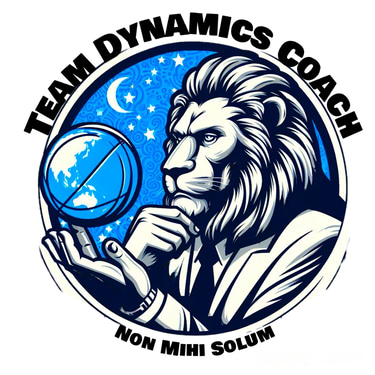Parenting Mindset
Cultivating Wholesome Parenting through Wholesome Team Dynamics
5/3/20259 min read


In a Nutshell
Wholesome Parenting Mindset: A wholesome parenting mindset means approaching child-rearing with consistent love, patience, flexibility and growth orientation. It involves supporting children’s learning, emotional well-being and resilience (e.g. using an authoritative style of “warmth plus discipline”). Research shows that strong parent–child bonds and positive parenting practices (like praising effort and regular family routines) lead to better mental health, school success and lifelong well-being for children.
Impact of Team Dynamics: Healthy, supportive teams at work help parents reduce stress, learn cooperation, and model the same values at home. Studies find that employees with strong supervisor and peer support report lower parenting stress and conflict. For example, a workplace intervention that gave employees more schedule flexibility led them to spend more time with their children and experience less work–family conflict. In Singapore, parents with poor work–family balance had higher parenting stress and more marital conflicts. Thus, an encouraging team culture (empathy, flexibility, recognition) spills over positively: parents come home calmer, more patient and focused on their kids.
Family Unity & Society: When parents practice a wholesome mindset, families become more cohesive across generations. Simple practices like shared meals, open communication and teamwork help “bond” the family. Indeed, global data shows that populations who share more meals together enjoy higher life satisfaction and social support. Within families, routines (family dinners, game nights, outings) reinforce values and trust. Children raised with empathy and cooperation tend to grow up socially responsible, bridging family and society. In effect, each stable, nurturing family contributes to stronger social cohesion and resilience in the community.
Workplace Obstacles: Certain negative workplace factors undermine a wholesome parenting mindset. A fixed-mindset culture (where talent is seen as inborn and failure is stigmatized) breeds blame and fear of risk. This “sink-or-swim” attitude at work can carry over into parenting: an employee might become overly critical of their child’s mistakes or think the child’s abilities are fixed. A destructive team culture (e.g. gossip, bullying, constant criticism) increases stress hormones (cortisol) in employees, making them irritable or anxious at home. Research shows that unsupportive bosses and high job strain spill over into home life, lowering marriage quality and raising children’s stress. Poor peer support means employees have no one to share burdens with, so they come home exhausted or depressed. All these obstacles erode a parent’s emotional bandwidth. In short, negativity at work unconsciously lowers a parent’s empathy and patience at home.
Negative Environment Effects: Neuroscience and biology confirm these spillovers. Chronic work stress floods the body with cortisol, which impairs the brain’s ability to regulate emotions and respond sensitively. For example, a recent study found that mothers with elevated cortisol (from stress) showed more intrusive, less sensitive parenting and reduced brain activity to their baby’s cries. Conversely, warm, nurturing care triggers oxytocin (the bonding hormone) and buffers stress. Thus, a toxic workplace (with abuse or excessive demand) can trigger a parent’s fight-or-flight response, narrowing their attention to problems and reducing warmth with children. Over time, children “catch” this stress: one psychologist noted that when parents are more stressed, their kids are more stressed too, showing behavioral and emotional issues.
Importance in a BANI World: Today’s world is BANI – Brittle, Anxious, Nonlinear, Incomprehensible (Cascio, 2020). In such turbulent times, dependable teams matter more than ever. For example, brittle systems “give the illusion of strength” but can shatter with a small shock. Teams built on trust and flexibility have the resilience to absorb shocks. The “Anxious” reality – constant uncertainty and distrust – demands empathy and psychological safety at work. Supportive, open teams help employees cope with uncertainty by sharing burdens, which in turn prevents anxiety from infecting family life. In sum, wholesome team dynamics (trust, adaptability, empathy) are essential in a BANI world to keep stress from fracturing families.
Basketball-Inspired Frameworks: Legendary basketball coaches offer practical leadership mindsets that apply to both office teams and families. For example:
John Wooden’s Pyramid of Success: Wooden’s well-known model builds success from core virtues. The pyramid’s foundation includes Industriousness, Friendship, Loyalty, Cooperation, and Enthusiasm, rising through Self-Control and Initiative up to Competitive Greatness. Wooden taught that true “competitive greatness” (being at your best under any condition) comes from all lower blocks. In practice, a manager or parent can use Wooden’s values: e.g. insist on hard work and honesty (Industriousness), create camaraderie (Friendship/Cooperation) and maintain enthusiasm even during challenges. A family or team that shares credit and blame, like Wooden advised, will achieve goals and strengthen bonds.
Phil Jackson’s 11 Mindful Leadership Principles: In Eleven Rings, Phil Jackson (11-time NBA champion coach) emphasizes leading from within and caring for the person, not just the role. For instance, he says “lead from the inside out” and “bench the ego” – i.e. speak and decide from your heart and share leadership rather than imposing power. He even used meditation: “One Breath = One Mind” was a ritual Jackson used to synchronize his team’s focus. He also stressed compassion: “a few kind, thoughtful words…have a strong transformative effect” on even the toughest people. Parents and bosses alike can emulate Jackson: listen deeply to family members, foster each person’s strengths (letting them “discover their own destiny”), and use simple rituals (breathing together, family affirmations) to build unity and calm.
Kobe Bryant’s Mamba Mentality (CHAMPIONED framework): Kobe’s famed “Mamba Mentality” is about setting high personal standards and relentless growth. As one parenting guide explains, Mamba thinking emphasizes high standards, passion, and perseverance for success. Adaptations like the CHAMPIONED framework (Champion Attitude, Hope, Ambition, etc.) break down these ideas into habits. In a work and home context, this means modeling discipline and goal-setting. For example, a parent following Kobe’s example would encourage kids to pursue challenging goals and practice diligently (Mamba-inspired CHAMPIONED principles) while also balancing rest and family priorities.
Khrysalis Coaching Pedagogy: In Singapore, NTUC’s Khrysalis Coaching Series (ICF-accredited) teaches leaders to coach with empathy, active listening and self-awareness. These ICF-based skills (e.g. asking open questions, reflecting, setting goals) create supportive mentors at work. Managers trained this way learn to empower employees rather than dictate. Crucially, these coaching skills translate to home life: a boss who listens can do the same with family, helping children articulate feelings and solutions. In short, Khrysalis training helps managers grow wholesome leaders who naturally apply coaching rapport and trust at home too.
Parallels in Communication & Ritual: Basketball communication (calls, signals, eye contact) and social routines have clear analogies in family life. On-court, a simple hand signal or code word (e.g. “play ready”) instantly coordinates the team. At home, families can use consistent cues: a special dinner bell, “huddle” before meals, or a bedtime story ritual that primes children for cooperation. These signals leverage priming effects from psychology – familiar cues prepare emotions. For example, just as an announcer’s “Let’s go team!” can fire up players, a parent’s upbeat “Game time!” can energize kids for cleaning up or homework. Likewise, “circling up” for a quick family meeting (like a team huddle) reinforces unity. In both settings, positive, encouraging communication (clapping for effort, thanking teammates) is key. When leaders praise effort on the court, children in families also learn to praise each other (sharing wins, showing empathy when someone misses).
Mental Exercises for Employees: Employees and parents can borrow “sports psychology” exercises to strengthen a wholesome mindset:
Before Work – Visualization & Goal-Setting: Like athletes visualizing a game plan, a parent can take a few minutes in the morning to imagine a good outcome with their child (e.g. “I will respond calmly when my child needs help today”). This primes a positive mindset for challenges.
During the Day – Mindful Breathing: Inspired by Phil Jackson’s practice and research recommendations, employees can pause 1–2 minutes to focus on their breath. Even a brief “mindful moment” refreshes focus and reduces cortisol levels. (The Mayo Clinic notes that mindfulness can reduce stress and improve mood.) For example, at lunch or a mid-meeting break, close your eyes and breathe slowly; this can align you “mind and body” for the tasks ahead (Jackson’s “one mind” idea).
Midday – Team Stretch or “Timeout”: Take a short break with colleagues: stretch or do light exercise together (simulating a quick “team huddle”). Physical activity releases tension and mirrors the athletic teamwork spirit, which can uplift everyone’s mood.
End of Work – Debrief and Gratitude: After leaving the office, spend a moment reviewing positives from the day or noting a success (e.g. a colleague’s support, a task completed). This “cool-down” is like a post-game debrief, helping you leave stress behind. Some people write a quick gratitude note (e.g. thanking your child or spouse) or mentally switch context from “work” to “home”.
Evening – Family Ritual: Use a short family ritual (like sharing one highlight from the day) to reinforce communication skills learned at work. Listening attentively to your child’s story (mirroring coaching empathy) models respect and teaches them to listen in turn.
Conclusion & Call to Action: A positive team culture at work is not just good for business – it shapes how we parent. By adopting the values and habits of great coaches and supportive teams, we create a ripple effect: employees feel happier and more balanced, families grow closer, and society benefits from stronger citizens. Embracing frameworks like Wooden’s Pyramid or the Mamba Mentality is not far-fetched; they’re about timeless virtues (hard work, empathy, growth) that apply anywhere. In Singapore’s fast-changing (BANI) world, adopting these principles gives us the mental flexibility and unity we need. We encourage organizations and individuals to champion these approaches: train managers to coach, build psychologically safe teams, and consciously translate teamwork values into parenting. The payoff is sustainable: teams that support one another at work enable parents to support their children at home.
Real-world Role Models: Leaders who bridge sports frameworks and family life illustrate this synergy. For example, Golden State Warriors coach Steve Kerr – himself a husband and father of four – openly credits John Wooden’s philosophy in his coaching. Kerr’s leadership style (active listening, empowering players) mirrors the values he upholds at home. Kobe Bryant’s family is another example: he spoke about applying his “Mamba Mentality” to fatherhood, instilling discipline and high standards in his daughters. Such figures show that the same principles winning in basketball can build winning family relationships as well.
Layperson’s Explanation
Imagine work like a team sport: when your colleagues and boss play nicely together – encouraging each other, sharing work, and even having each other’s backs – you feel good and less stressed. You can then go home and be a kinder, more patient parent. But if work feels like a constant race or you have a mean coach who yells, you carry that stress home. Studies show that parents stressed out by work end up snapping or worrying more with their kids, while those with supportive work friends feel happier and more available at home.
A “wholesome parenting mindset” is simply the idea of parenting from love, patience, and teamwork, not fear. Think of it like being a coach for your child: you cheer them on for trying hard, guide them gently when they make mistakes, and keep consistent routines (like family dinners) to bond together. Science confirms that kids whose parents do this tend to be healthier, happier and do better in life.
How can work teams help? If your team at work praises effort, helps each other, and allows flexible schedules, you come home feeling like part of a winning team. You’re more relaxed and have energy to connect with your family. In contrast, a toxic workplace – with blame, inflexibility, or bullying – raises stress hormones. High cortisol in parents has even been linked to less sensitive brain responses to their child’s cries.
We’re living in a chaotic world (BANI – brittle, anxious, etc.), where teams can suddenly break down or stresses come from everywhere. A strong team dynamic is like having a sturdy tent in a storm: it helps us stay secure. Things like empathy, trust and flexibility at work become shields against the chaos, and those habits carry over into how we interact with our kids.
Interestingly, basketball coaches have long taught these ideas. Coach John Wooden’s famous “Pyramid of Success” starts with basics like loyalty and cooperation, which all families need. Phil Jackson, who won 11 NBA titles, practiced “mindfulness” with his teams (breathing together, focusing on the process instead of the score). Kobe Bryant’s “Mamba Mentality” was about setting high standards and working tirelessly – a mindset he wanted his kids to learn too.
We can use simple basketball-style drills in our day. Before work, do a quick mental warm-up: imagine calmly handling tonight’s dinner chaos or helping with homework. During work, take short “time-outs” to breathe deeply and refocus (just a minute can lower stress). After work, have a little team huddle with your family: maybe share one good thing from the day. These practices prime your brain to switch from “employee mode” to “parent mode.”
In short: build your work team to act like good teammates, and you’ll find the same team spirit boosts your family life. A positive office environment and leadership style (like those taught by great coaches) help you bring patience, teamwork and encouragement home. People like coach Steve Kerr and Kobe Bryant show that what works on the court – trust, hard work, communication – also makes a great family. Adopting these frameworks won’t just make you a better employee; it will make you a more joyful, balanced parent, and help your family thrive together.
Sources: Research and expert writings on positive parenting, workplace-family balance, neuroscience of stress, and leadership frameworks (e.g. VanderWeele et al. 2019; Chung et al. 2023; Honos-Webb & King 2023; Houston YMCA/Mayo Clinic advice; leadership summaries of Wooden and Jackson). Each idea above is backed by these studies and analyses.


